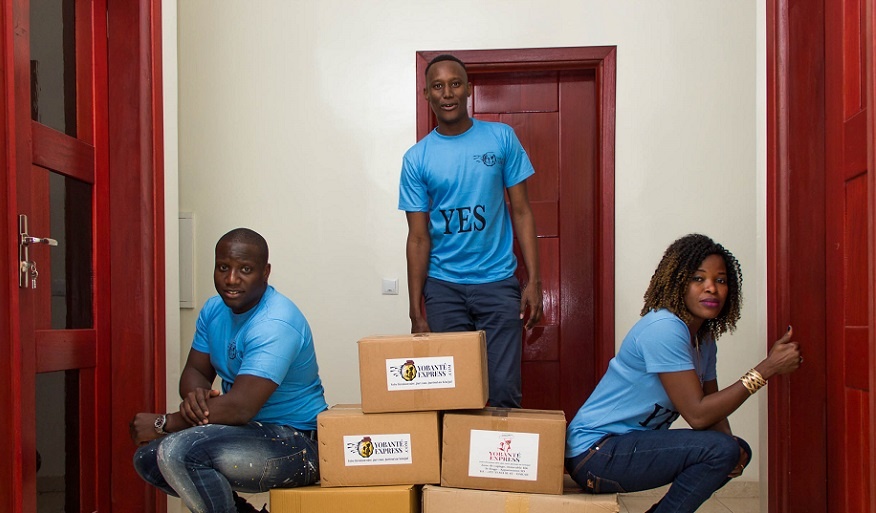Senegalese startup Yobante Express, which has developed an innovative way of making last mile deliveries quicker and cheaper, has expanded to South Africa as the first stop on what it plans will be a pan-African journey.
Founded in November 2018, Yobante Express is an online marketplace that connects local couriers with local commerce to optimise domestic, cross-border and last mile delivery.
Its web and mobile platform uses gig economy, independent and casual couriers within a resilient mesh network of relay points to deliver packages from point to point until the last mile, twice as fast and 40 per cent more affordably than existing solutions.
To start a journey, a client requests delivery using the startup’s app or directly at the nearest relay point. Once there, the independent agent packs the item into a Yobante-branded parcel and attaches a shipping label that contains a unique online tracking barcode. The startup’s machine learning algorithm determines an optimised route for that parcel.
A motorcycle rider, bus or truck driver then takes that parcel to the next relay point. This process iterates over and over until the very final delivery. At that point, the recipient uses a unique four-digit PIN code to confirm the receipt of the parcel.
“Literally, anyone owning a vehicle, anyone travelling in the general direction of the parcel and anyone with a shop or physical location can now make money as part of the Yobante Express network,” co-founder and chief executive officer (CEO) Oumar Basse told Disrupt Africa.
The market the startup is tapping into is huge.
“Every year, there are more than 7.2 million parcels sent via the formal network. The informal network is estimated to exceed 25 million parcels. And that’s just in Senegal,” Basse said.
“For the rest of Africa, nobody knows how big that market is. There are hundreds of millions of parcels being sent all over the continent via informal networks and none of them are being tracked.”
Since it launched in Senegal, Yobante Express has already on-boarded 250 relay points and 300 casual carriers. It is currently delivering more than 8,000 parcels every month, and is doing deliveries for more than 90 business clients, one of which is Jumia. Taking revenues from its share of delivery charges, as well as supplemental insurance on more valuable parcels, the startup is generating around US$50,000 per month.
It is now focused on expansion. Yobante Express took part in the just-concluded Startupbootcamp AfriTech accelerator programme in Cape Town, and used its time in South Africa to launch its solution there. It has partnered with two existing Cape Town-based parcel delivery companies, Chihwa and Delta, who deliver to destinations as far afield as the Eastern Cape, Botswana and Zimbabwe. It has also on-boarded 150 spaza shops from all over South Africa as relay points.
“In the last two weeks, we’ve successfully completed more than 400 deliveries, fully tracked and without a single lost parcel,” Basse said.
“For the first time ever, Yobante is providing reliable parcel tracking between South Africa, Zimbabwe, and Botswana. But our ambitions are even bigger. We’ve also launched two more pilots – in Ghana with 23 shops in Accra, and in Nigeria with 168 shops in Lagos.”
Yobante Express will fully launch operations in those three markets, plus Mali, once it has closed its US$500,000 funding round. Having taken on board a small amount of angel funding plus investment from Startupbootcamp until now, the new round will be used for marketing, kiosks, and scale-up. Basse said it already has 60 per cent committed, and hopes to have completed the round by January.
“We are also looking to partner with an innovative reinsurance provider who wants to be part of this amazing logistics journey,” he said.


